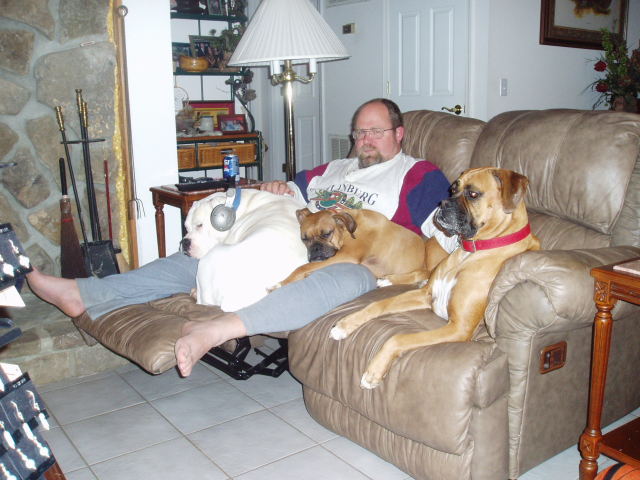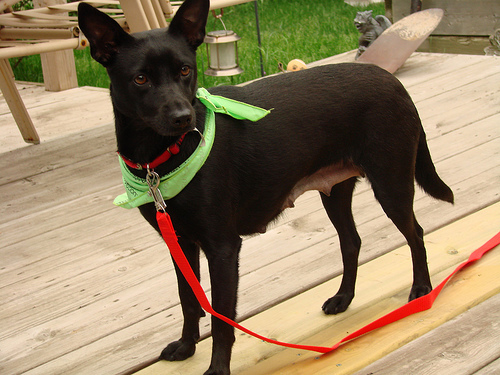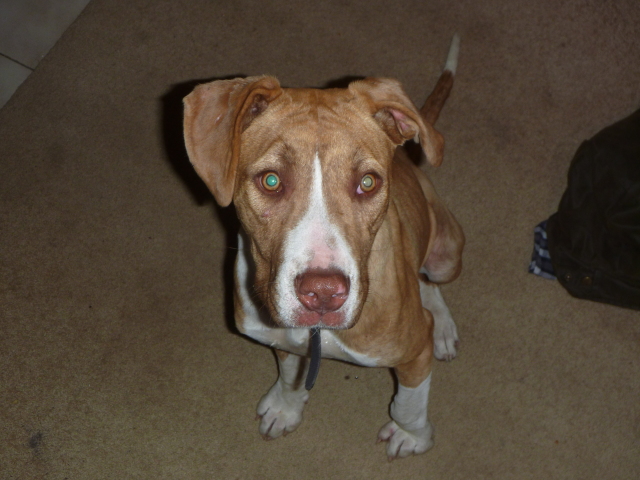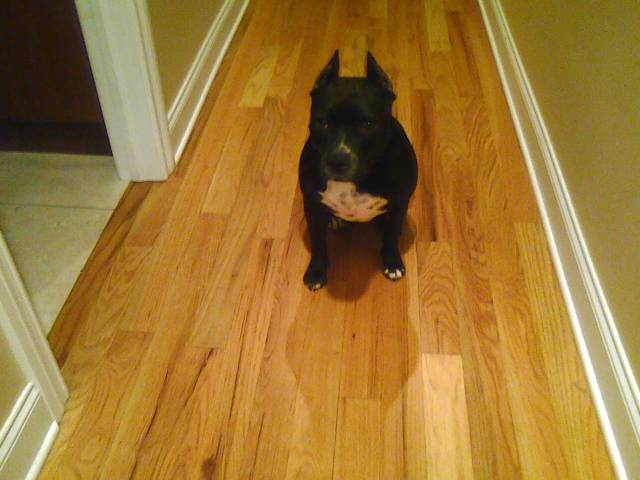QuestionI am most unfortunately having to euthanize one of my dachshunds tomorrow and his "brother" Felix thinks he hung the moon. I was wondering how to make this less traumatic for Felix. Any advice would be appreciated on this transition. Thanks so much in advance.
AnswerHi Samantha,
I'm sorry to hear of the loss of your dog.
When a person experiences the death of a human loved one, he or she may lose focus, becomes listless and disoriented, doesn't eat and becomes disinterested in what is happening around him. The person may cry or go without sleep or sleep more than usual. An animal that is experiencing the loss of another animal companion may react similarly. Some animals can actually become depressed when they lose a loved one. They show symptoms similar to humans such as loss of interest in their favorite activities and sleeping more than usual. However, sometimes dogs may distance themselves from the family and sleep more than usual when they are ill, so you should consult with your veterinarian before seeing a behaviorist if your dog exhibits symptoms such as these.
Felix may lose his appetite, become disoriented, or become more clingy. If your deceased dog was taken to a veterinarian to be euthanized, the Felix may sit at the window for days watching for his return. Animal behaviorists commonly call this emotional state separation anxiety. On the surface, the pet's behavior is similar to that of a person experiencing grief over the loss of a loved one.
The ASPCA conducted a Companion Animal Mourning Project in 1996. The study found that 36 percent of dogs ate less than usual after the death of another canine companion. About 11 percent actually stopped eating completely. About 63 percent of dogs vocalized more than normal or became more quiet. Study respondents indicated that surviving dogs changed the quantity and location of sleep. More than half the surviving pets became more affectionate and clingy with their caregivers. Overall, the study revealed that 66 percent of dogs exhibited four or more behavioral changes after losing a pet companion.
If Felix shows signs that he is grieving the loss of your other dog, provide him with more attention and affection. Try to take his mind off it by engaging him in a favorite activity. If he enjoys human company, invite friends that he likes to visit and spend time with him. Take him with you when you go on short errands. Use environmental enrichment techniques such as toys to help keep him busy. Hide toys or treats at his favorite spots for him to find during the day.
If Felix is too depressed over the loss, he may not respond to extra activity right away. The old saying, "Time heals all wounds," has meaning for your dog, too. Time is one thing that may help. Based on the results of the ASPCA study, most dogs returned to normal after about two weeks but some dogs took up to six months to fully recover.
All the best to you and Felix, during this difficult time.
Patti

 aggressive behavior between my 3 dogs
Question
My loves watching tv
I have always had boxers,
aggressive behavior between my 3 dogs
Question
My loves watching tv
I have always had boxers,
 Guessing my dogs mix
Question
matilda
I was wondering if you could help what
Guessing my dogs mix
Question
matilda
I was wondering if you could help what
 Malnurished Bull Mastif x Great Dane ;
Question
Sticks
Hi,
Ive recently, (the last 24 hours) b
Malnurished Bull Mastif x Great Dane ;
Question
Sticks
Hi,
Ive recently, (the last 24 hours) b
 AmStaff Terrier
QuestionMy dog
QUESTION: I have a 2 1/2 year old
AmStaff Terrier
QuestionMy dog
QUESTION: I have a 2 1/2 year old
 TRAINING POMERANIANS
Question
chichi&coco
I have two Pomeranian-mixed do
TRAINING POMERANIANS
Question
chichi&coco
I have two Pomeranian-mixed do